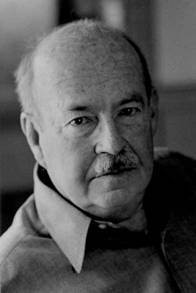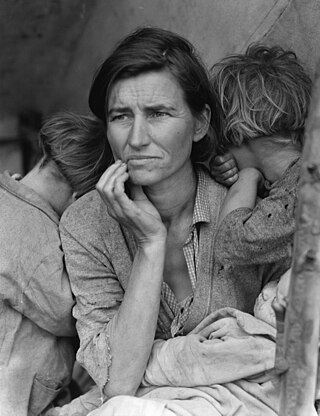Related Research Articles

Talcott Parsons was an American sociologist of the classical tradition, best known for his social action theory and structural functionalism. Parsons is considered one of the most influential figures in sociology in the 20th century. After earning a PhD in economics, he served on the faculty at Harvard University from 1927 to 1973. In 1930, he was among the first professors in its new sociology department. Later, he was instrumental in the establishment of the Department of Social Relations at Harvard.

Ferdinand Tönnies was a German sociologist, economist, and philosopher. He was a significant contributor to sociological theory and field studies, best known for distinguishing between two types of social groups, Gemeinschaft and Gesellschaft. He co-founded the German Sociological Association together with Max Weber and Georg Simmel and many other founders. He was president of the society from 1909 to 1933, after which he was ousted for having criticized the Nazis. Tönnies was regarded as the first proper German sociologist and published over 900 works, contributing to many areas of sociology and philosophy. Tönnies, Max Weber, and Georg Simmel are considered the founding fathers of classical German sociology. Though there has been a resurgence of interest in Weber and Simmel, Tönnies has not drawn as much attention.
In social science and economics, public interest is "the welfare or well-being of the general public" and society. While it has earlier philosophical roots and is considered to be at the core of democratic theories of government, often paired with two other concepts, convenience and necessity, it first became explicitly integrated into governance instruments in the early part of the 20th century. The public interest was rapidly adopted and popularised by human rights lawyers in the 1960s and has since been incorporated into other fields such as journalism and technology.

Robert Ezra Park was an American urban sociologist who is considered to be one of the most influential figures in early U.S. sociology. Park was a pioneer in the field of sociology, changing it from a passive philosophical discipline to an active discipline rooted in the study of human behavior. He made significant contributions to the study of urban communities, race relations and the development of empirically grounded research methods, most notably participant observation in the field of criminology. From 1905 to 1914, Park worked with Booker T. Washington at the Tuskegee Institute. After Tuskegee, he taught at the University of Chicago from 1914 to 1933, where he played a leading role in the development of the Chicago School of sociology.
Actor–network theory (ANT) is a theoretical and methodological approach to social theory where everything in the social and natural worlds exists in constantly shifting networks of relationships. It posits that nothing exists outside those relationships. All the factors involved in a social situation are on the same level, and thus there are no external social forces beyond what and how the network participants interact at present. Thus, objects, ideas, processes, and any other relevant factors are seen as just as important in creating social situations as humans.
A community of purpose is a community of people who are going through the same process or journey to achieve a similar, often emergent, objective.
A community of interest, or interest-based community, is a community of people who share a common interest or passion. These people exchange ideas and thoughts about the given passion, but may know little about each other outside this area. Participation in a community of interest can be compelling, entertaining and create a community where people return frequently and remain for extended periods. Frequently, they cannot be easily defined by a particular geographical area.
A community of position is distinguished from a community of practice in that it tends to be more personally focused. Communities of position built around life stages provide individuals with the opportunity to build relationships with others during that particular phase of their lives.

This is an index of sociology articles. For a shorter list, see List of basic sociology topics.
A community of action (CoA), unlike a community of practice, exists in a situation that is structurally more open, where actors have the possibility of bringing about change.

In the United States, the Great Depression began with the Wall Street Crash of October 1929 and then spread worldwide. The nadir came in 1931–1933, and recovery came in 1940. The stock market crash marked the beginning of a decade of high unemployment, famine, poverty, low profits, deflation, plunging farm incomes, and lost opportunities for economic growth as well as for personal advancement. Altogether, there was a general loss of confidence in the economic future.
Circumstance or circumstances may refer to:
Community-based participatory research (CBPR) is an equitable approach to research in which researchers, organizations, and community members collaborate on all aspects of a research project. CBPR empowers all stakeholders to offer their expertise and partake in the decision-making process. CBPR projects aim to increase the body of knowledge and the public's awareness of a given phenomenon and apply that knowledge to create social and political interventions that will benefit the community. CBPR projects range in their approaches to community engagement. Some practitioners are less inclusive of community members in the decision-making processes, whereas others empower community members to direct of the goals of the project.
A community of place or place-based community is a community of people who are bound together because of where they reside, work, visit or otherwise spend a continuous portion of their time. Such a community can be a neighborhood, town, coffeehouse, workplace, gathering place, public space or any other geographically specific place that a number of people share, have in common or visit frequently. A community offers many appealing features of a broader social relationship: Safety, familiarity, support and loyalties as well as appreciation. Appreciation that is founded on efforts and contribution to the community, rather than the efforts, rank or status of an individual.
Robert Alexander Nisbet was an American conservative sociologist, a professor at the University of California, Berkeley, vice-chancellor at the University of California, Riverside, and an Albert Schweitzer Professor at Columbia University.
The following outline is provided as an overview of topics relating to community.
In philosophy, political science and sociology, elite theory is a theory of the state that seeks to describe and explain power relations in society. In its contemporary form in the 21st century, elite theory posits that (1) power in larger societies, especially nation-states, is concentrated at the top in relatively small elites; (2) power "flows predominantly in a top-down direction from elites to non-elites"; and (3) "the characteristics and actions of elites are crucial determinants of major political and social outcomes".
Orval Hobart Mowrer was an American psychologist and professor of psychology at the University of Illinois from 1948 to 1975 known for his research on behaviour therapy. Mowrer practiced psychotherapy in Champaign-Urbana and at Galesburg State Research Hospital. In 1954 Mowrer held the position of president of the American Psychological Association. Mowrer founded Integrity Groups and was instrumental in establishing GROW groups in the United States. A Review of General Psychology survey, published in 2002, ranked Mowrer as the 98th most cited psychologist of the 20th century.

Sociology is the scientific study of human society that focuses on society, human social behavior, patterns of social relationships, social interaction, and aspects of culture associated with everyday life. Regarded as a part of both the social sciences and humanities, sociology uses various methods of empirical investigation and critical analysis to develop a body of knowledge about social order and social change. Sociological subject matter ranges from micro-level analyses of individual interaction and agency to macro-level analyses of social systems and social structure. Applied sociological research may be applied directly to social policy and welfare, whereas theoretical approaches may focus on the understanding of social processes and phenomenological method.

Thomas Nixon Carver was an American economics professor.
References
- ↑ Marsh G. The community of circumstance—a tale of three cities: community participation in St Kilda, Knox, and Lewisham. In: Chekki DA, ed. Research in community sociology. Vol 9. Varieties of community sociology. Greenwich, CT: Jai Press, 1999, pp. 65–88.